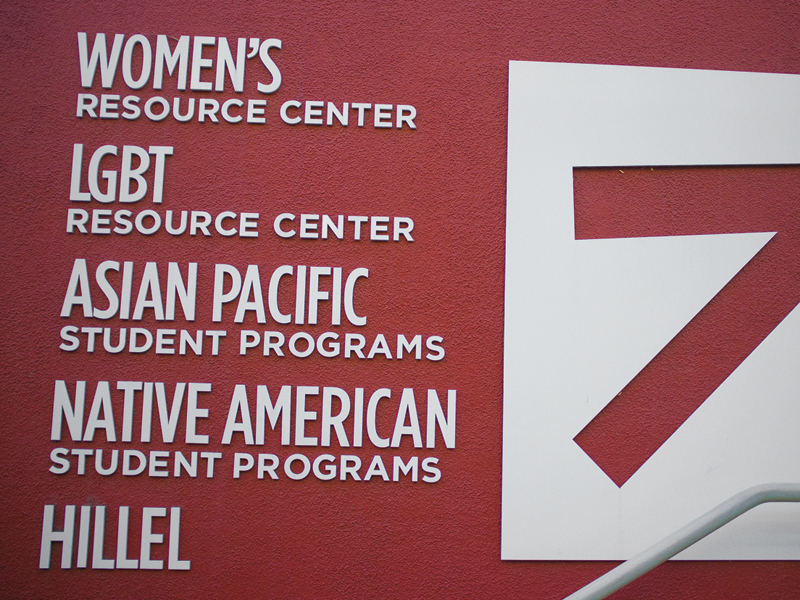
The Lesbian Gay Bisexual Transgendered (LGBT) community has been facing a real struggle with discrimination, especially when it comes to health issues. According to LGBT Health Board, doctors have refused to treat LGBT patients and medical training may not usually cover LGBT health — such as STD and HIV testing and hormone therapy — so the doctors who do want to help need to be able to educate themselves in the LGBT community’s health issues and cultural competency so they can give the highest quality care. When doctors are incapable of treating said health issues, it leads the LGBT community to refrain from disclosing their sexual orientation or gender identity so they don’t generate negative responses from their providers. This means that a majority of the community is without the highest quality service that they could receive because of the fear of disclosing their identity.
On Thursday, Nov. 21, Riverside City Hall held a meeting that pertained to the Riverside LGBT community. This event was one of the first of many to discuss health issues concerning LGBT individuals and how to reach out to them. This is a great event for the LGBT community because while there are places like churches or bars to interact, there doesn’t seem to be a specific place that addresses LGBT health needs such as STD testing. The event consisted of an hourlong talk about a single health issue and then two hours of conversing over refreshments.
Gabriel Maldonado, one of the planners, thought this out well because it is an effective and intimate environment for LGBT individuals to talk to the health experts and concerned individuals. A presentation brings the point across but it’s better to talk to the presenter one-on-one. Talking to different doctors and people of the LGBT community face-to-face will help bring different issues to the table rather than just focus on the one central idea that the presentation discusses. Fortunately, this won’t be the only session. There will be multiple quarterly sessions to discuss different issues.
Compared to other cities and counties, Riverside has a lot of work to do. With a simple Google search, I was easily able to find articles about health services in communities in Los Angeles, Orange County and more. In fact, the Los Angeles Gay and Lesbian Center had just been granted money for healthcare. According to the Washington Blade, Christopher Brown, the center’s Health and Mental Health Services Director, remarked, “This is a huge turning point … For far too long, LGBT people have suffered discrimination in health care.” Brown has a point by saying that healthcare should be a right for every human being. While Riverside may not have the largest LGBT community, the community still must not be ignored, and now that Los Angeles has had its time in the spotlight, it’s Riverside’s turn
Over these quarterly sessions, one thing that should be discussed is some sort of insurance change. With the Affordable Care Act in place, this could mean a new light at the end of the tunnel for equality that the LGBT community deserves. According to a recent study, when LGBT respondents were asked to describe their view of health insurance, nine in 10 participants “described health insurance coverage as either very important (18 percent) or as a necessity that they would not give up (73 percent).”
And they shouldn’t give up either. It’s not supposed be a tedious battle just to go to a doctor. However, the survey showed other participants, especially transgender participants, were a little more discouraged. It said, “Transgender focus-group participants reported overwhelmingly negative experiences with health insurance coverage, particularly denials of coverage on the basis of pre-existing conditions and the prevalence of transgender-specific insurance exclusions that refuse them the health care services they need.”
Even with insurance and even for students who supposedly have some sort of coverage, getting help is no picnic. UCR LGBT Center Director Nancy Tubbs explains that it’s very difficult for transgender students to find doctors who will provide hormone therapy despite having trans-related health care covered in their insurance.
The UCR LGBT Center also has some desires in mind for the community, especially a community-based LGBT center. Tubbs said, “The LGBT Resource Center gets many calls and emails from Riverside area residents seeking referrals for LGBT-friendly services. We are called because currently Riverside does not have a community-based LGBT center… People ranging from teenagers to the elderly desperately need LGBT culturally-competent assistance.”
Tubbs makes a good point. A community LGBT center is a great start for change in Riverside. If anything gets accomplished, it should be the establishment of some sort of meeting ground so that the LGBT community can become aware of places that they can go to get help, whether it be something health related or maybe a support group of some sort.
Many things can be accomplished through these meetings but most of all, the LGBT community needs to feel comfortable enough to actually want to go see a doctor. They should be able to proudly state their sexual orientation or gender identity without fear of being pushed away. According to the LGBT Health Board, the LGBT community exists in every state. So why should they be denied the same care as everyone else? Maldonado and the sponsors of this city hall event are determined to bring some sort of change to Riverside and make the LGBT community’s needs be known and helped with.








